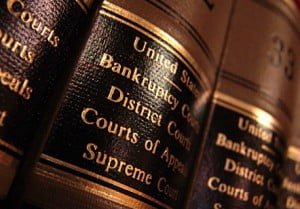In the Chapter 7 bankruptcy case of a Texas debtor, the state Probate Court issued an order directing that a certain amount of money be paid to a plaintiff in the case and that the bankruptcy case be dismissed. The debtor argued that it is not in the domain of the bankruptcy court to handle probate issues and therefore the court could not force payment according to the order.
…the question presented is whether a bankruptcy court, in addition to declaring a debt non-dischargeable, has jurisdiction to liquidate the debt and enter a monetary judgment against the debtor. Several of our sister circuits that have considered this question found that the bankruptcy courts have the power to enter judgment in exactly this manner [citing cases from the 9th, 6th, 8th, and 7th Circuits]. . . . While acknowledging the tension [with the predominant theory of bankruptcy jurisdiction], we too conclude that jurisdiction existed to issue, if not necessarily enforce, the personal judgment against [the debtor].
The bankruptcy court agreed that they would leave certain issues for the Probate Court; but emphasized that whether or not a debt can be discharged is the domain of bankruptcy court. While the probate court certainly has the right to enter a claim in the debtor bankruptcy court, it is the bankruptcy trustee who will decide, based on the law, if that claim can be discharged in bankruptcy.
In other words, the claim created by Probate Court cannot ignore the automatic stay and attempt to collect assets from the bankruptcy estate without first requesting that that the automatic stay be lifted. The bankruptcy court ruled that it would deny the plaintiff’s motion to dismiss the bankruptcy case. Texas debtors considering bankruptcy should tell their Dallas bankruptcy attorney about any probate issues they may face before they file.
